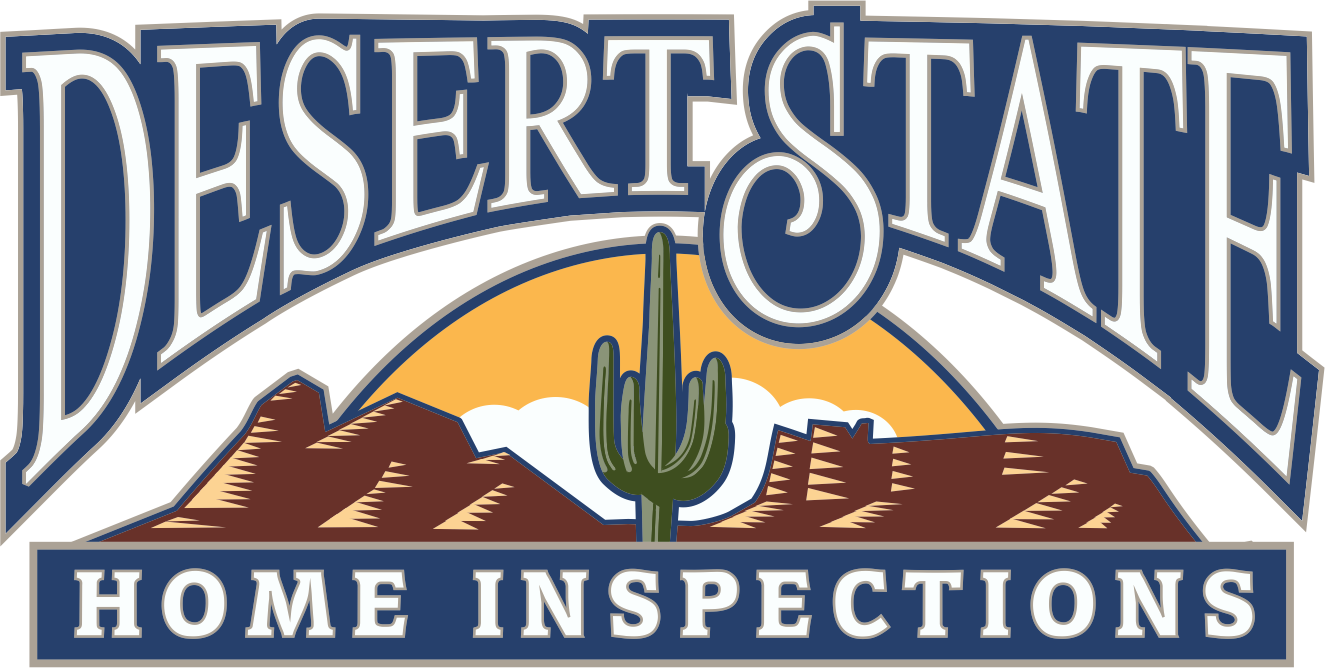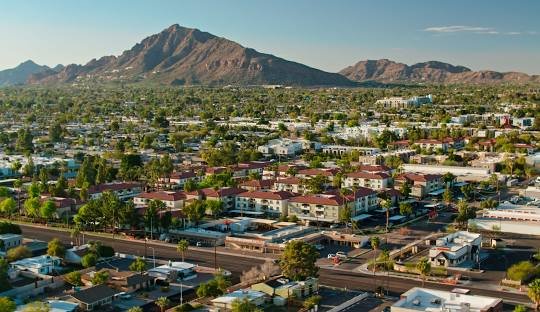Home Inspection in Scottsdale Arizona
Scottsdale, AZ, is a vibrant city nestled in the Sonoran Desert, just east of Phoenix. Known for its luxurious resorts, world-class golf courses, and thriving arts scene, Scottsdale offers the perfect blend of natural beauty and modern amenities. The city features stunning hiking trails such as Camelback Mountain and McDowell Sonoran Preserve, while its bustling Old Town district boasts local dining, shopping, and nightlife. Scottsdale’s strong community and rapid growth make it an ideal place for families, professionals, and retirees alike.
Desert State Home Inspections proudly serves the residents of Scottsdale, ensuring their homes are safe, reliable, and move-in ready with our trusted and thorough inspection services. We specialize in luxury home inspections, one year home warranty inspections, buyer home inspection, seller home inspection, and more. We’re grateful to be part of such a wonderful community for over 25 years. We’re still Locally owned and operated!
Services Provided by Desert State Home Inspections for Scottsdale AZ
✔ Home Buyer Inspections
✔ Home Warranty Inspections
✔ Pre-Listing Inspections
✔ New Construction Inspections
✔ One-Year Home Warranty Inspections
Important Local Links For Scottsdale, AZ
City of Scottsdale Official Website
More About Scottsdale, AZ
Scottsdale is renowned for its unique mix of luxury living and outdoor adventure. Residents and visitors enjoy iconic attractions such as Frank Lloyd Wright's Taliesin West, vibrant events like the Barrett-Jackson Car Auction, and cultural hotspots like the Scottsdale Museum of Contemporary Art. The city also hosts top-rated schools, expansive parks, and family-friendly neighborhoods, making it a prime location to call home.
Desert State Home Inspections is honored to play a key role in Scottsdale’s growth and safety, providing homebuyers and homeowners with peace of mind through detailed and reliable inspection services.
Common Home Inspection Issues to Watch For:
1. Roof Damage
Roof issues are one of the most common findings during a home inspection. Look for missing shingles, water stains on ceilings, or signs of sagging. A damaged roof can lead to costly repairs if not addressed early.
Tip: Regular roof inspections can help you avoid expensive surprises.
2. HVAC System Problems
Heating, ventilation, and air conditioning (HVAC) systems are essential for comfort and energy efficiency. Inspectors often find issues like dirty filters, lack of maintenance, or aging units nearing the end of their lifespan.
Tip: Change filters regularly and have an HVAC professional perform annual tune-ups.
3. Plumbing Leaks and Water Damage
Leaks in pipes, faucets, or under sinks are common, as is water damage near walls and floors. Left unchecked, these issues can lead to mold growth or structural damage.
Tip: Look for water stains, musty smells, and weak spots in flooring around bathrooms or kitchens.
4. Electrical System Issues
Older homes often have outdated or unsafe wiring, which can pose a safety hazard. Signs include flickering lights, tripped breakers, or outlets without ground fault protection (GFCI).
Tip: Ensure GFCI outlets are installed in kitchens, bathrooms, and outdoor areas to prevent electrical risks.
5. Foundation or Structural Concerns
Cracks in walls, uneven floors, or doors that don’t close properly can indicate structural issues. These problems may range from minor settling to significant foundation damage.
Tip: Pay attention to small cracks and address them early to prevent larger structural issues.
Why You Shouldn’t Skip a Home Inspection
Thinking about skipping a home inspection to save money? Here's what you might risk:
Hidden Costs: Small issues like leaks or faulty wiring can turn into major expenses.
Safety Hazards: Undetected electrical or structural problems can put your family at risk.
Negotiation Power: Inspections provide leverage to negotiate repairs or pricing before purchase.
A professional home inspection is your safety net. It’s better to invest in peace of mind than to face unexpected repairs later.
Home Maintenance Tips for New Homeowners
1. Test Your Systems Early
Test HVAC, water heaters, and appliances right after moving in to catch issues quickly.
2. Seal Drafts and Insulate
Check windows and doors for drafts to improve energy efficiency. Simple caulking can save on utility bills.
3. Schedule Regular Inspections
Annual inspections of your roof, HVAC, plumbing, and electrical systems help prevent major problems.
4. Watch for Warning Signs
Water stains, cracks in walls, or unusual noises are early signals that something needs attention.
Tip: Routine maintenance saves time, money, and stress in the long run!
FAQs About Home Inspections
Q: How long does a home inspection take?
A: Most inspections take 2–4 hours, depending on the size and condition of the home.
Q: What areas are covered in a home inspection?
A: Home inspections typically cover the roof, HVAC, plumbing, electrical systems, structural components, appliances, and more.
Q: Should I attend the home inspection?
A: Yes! Attending allows you to ask questions and get a clear understanding of the inspector’s findings.
Q: Do new homes need inspections?
A: Absolutely. Even new homes can have construction defects that need to be addressed.
Q: What happens after the inspection?
A: You’ll receive a detailed report outlining findings and recommendations. Use this to make informed decisions about repairs or negotiations.


